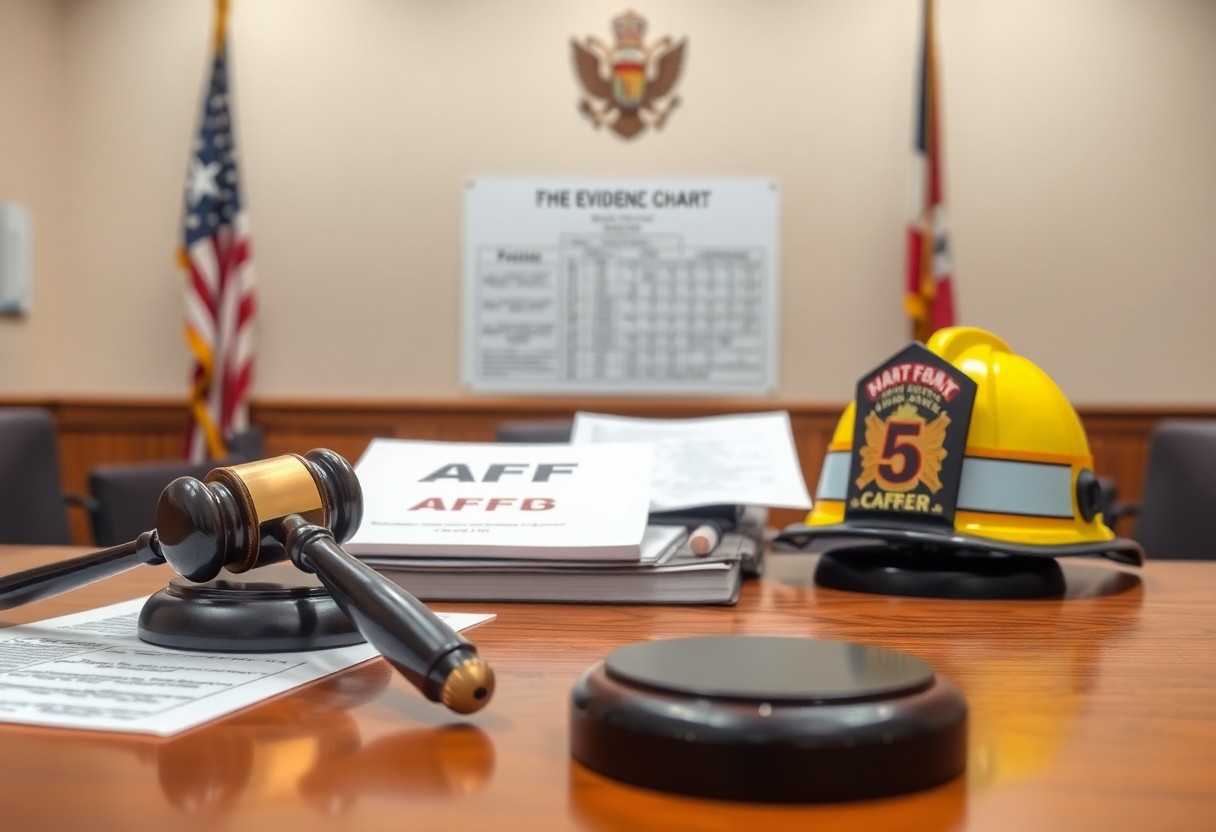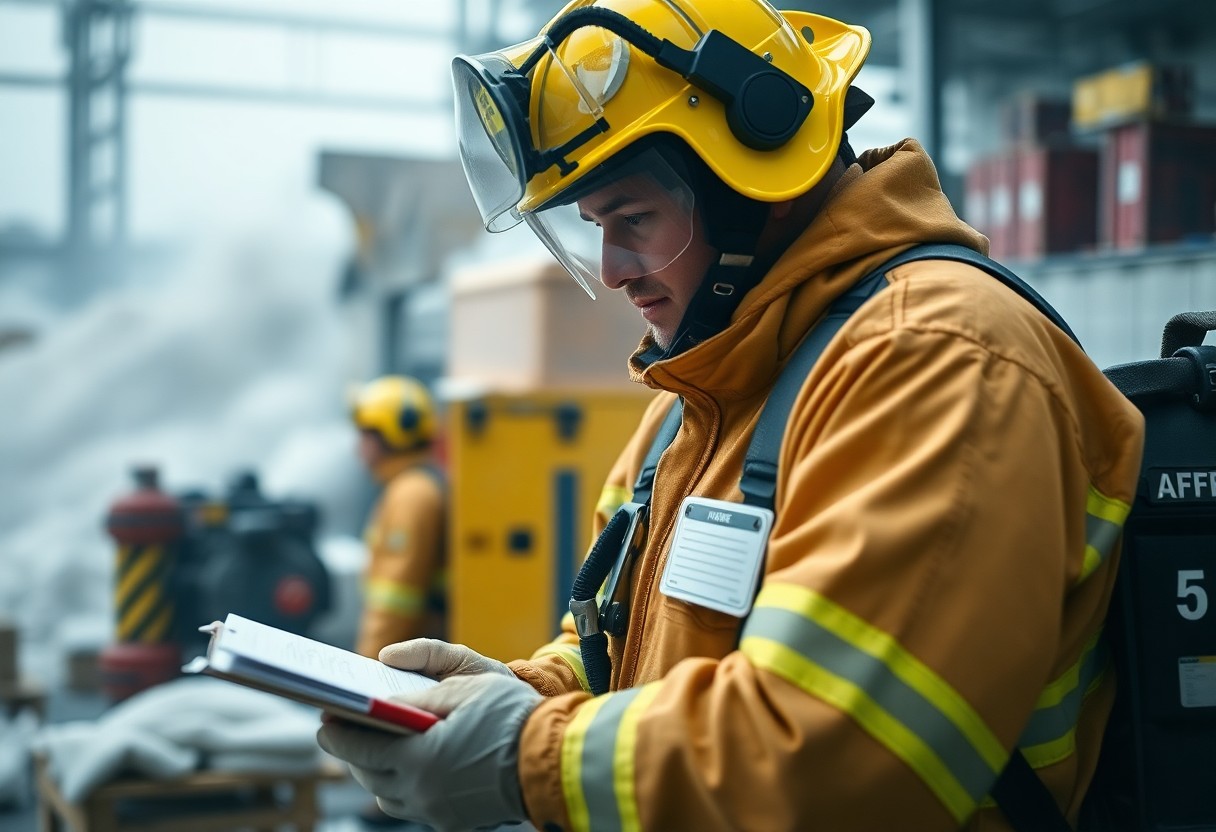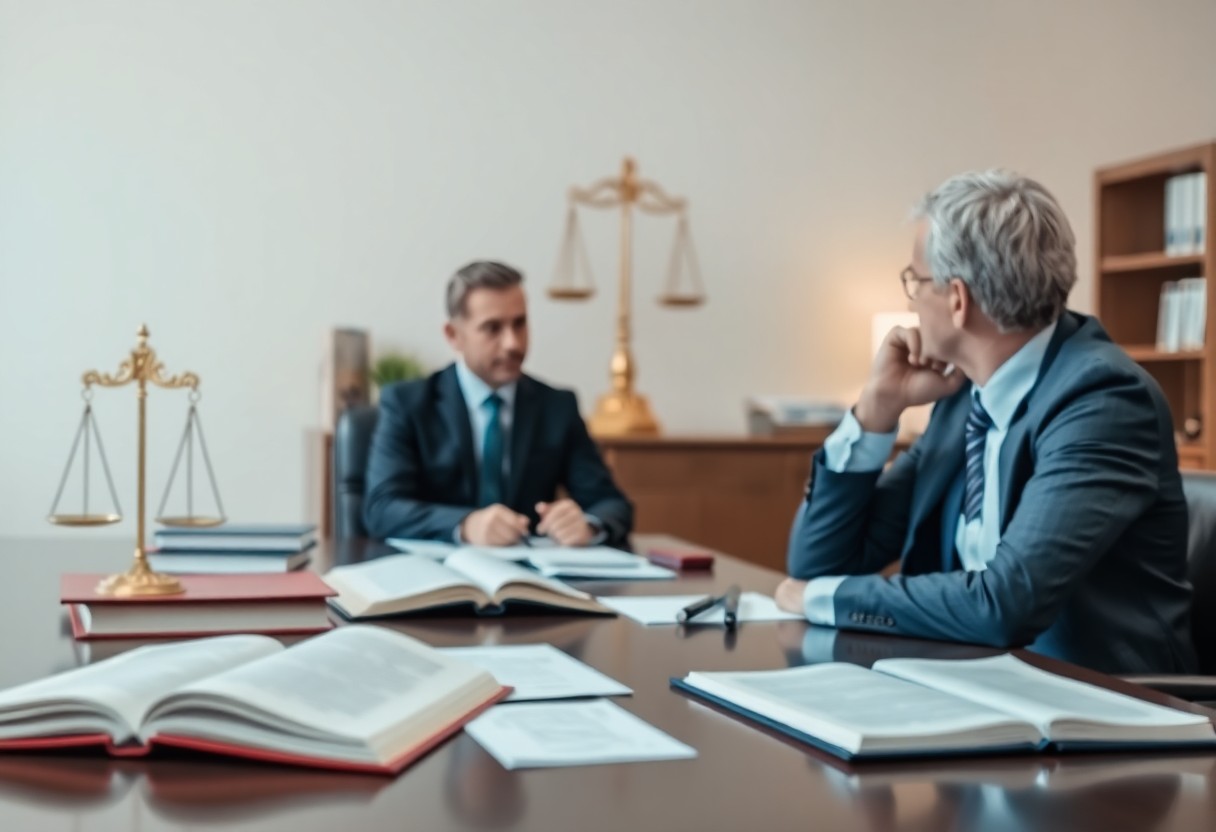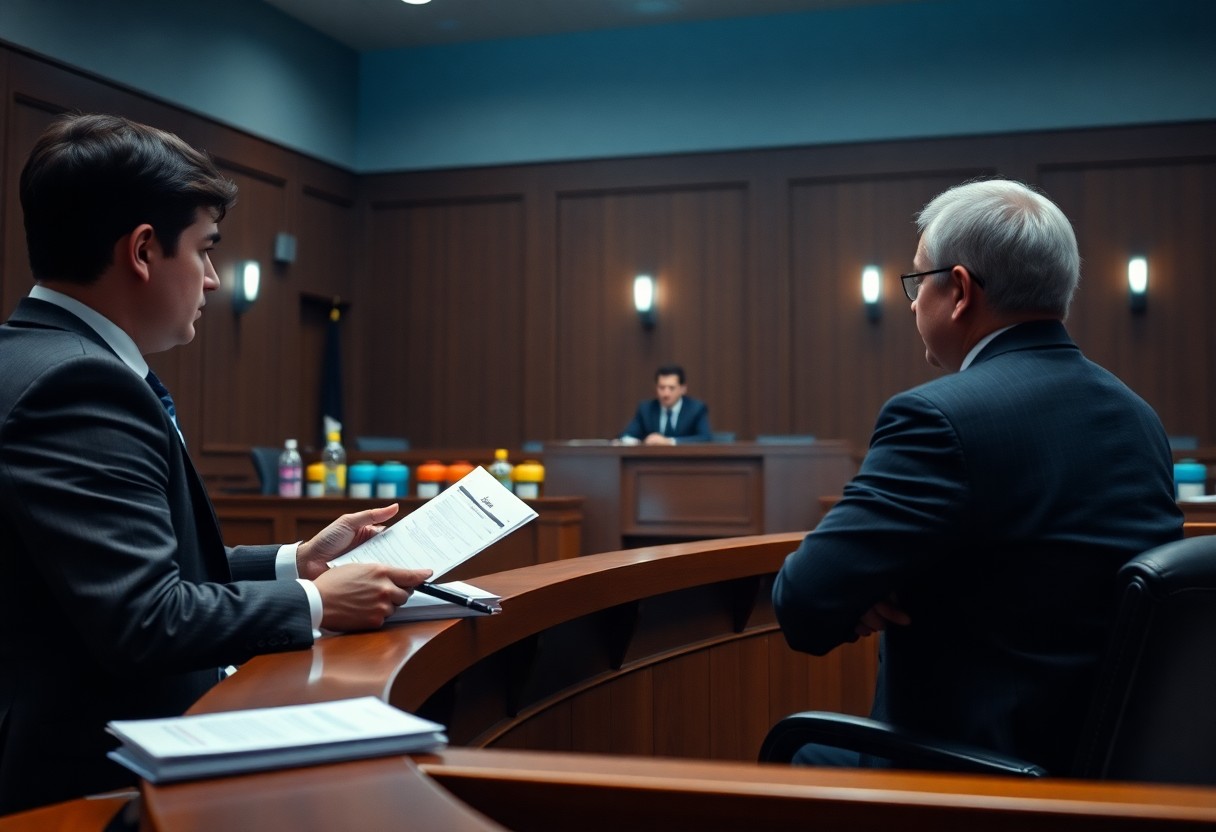Lawyers experienced in AFFF cases understand the complexities surrounding harmful chemicals used in firefighting foam. To ensure that your consultation is as effective as possible, you need to come prepared. Gather relevant documents such as medical records, employment history, and any evidence related to your exposure. Formulate your questions and concerns in advance to maximize your time together. This meeting is your opportunity to gain important insights and discuss potential legal actions, so being organized will empower you to take the next steps confidently.
Understanding AFFF Litigation
While navigating the complexities of AFFF (Aqueous Film Forming Foam) litigation, it’s vital to grasp the underlying issues surrounding the use of this firefighting agent. You may be concerned about the potential health risks associated with AFFF due to its chemical composition, particularly per- and polyfluoroalkyl substances (PFAS). These substances have been linked to various serious health conditions, including cancer, liver damage, and immune disorders. As such, understanding the legal landscape of AFFF litigation is key, as many individuals and communities have initiated lawsuits against manufacturers for their exposure to these harmful chemicals.
Overview of AFFF and Its Health Risks
AFFF is widely used in firefighting applications, particularly in aviation and petrochemical fires. However, the extensive use of this foam has raised alarms due to the persistent environmental contamination it can cause, with PFAS accumulating in the water supply and affecting both human health and wildlife. If you have been exposed to AFFF in your workplace or community, it’s important to be aware of these potential risks and take proactive steps toward understanding your legal options.
Importance of Legal Representation
Representation in AFFF litigation is vital, as the legal process can be daunting and complex. Having a skilled attorney who understands the specific nuances of AFFF cases can greatly enhance your chances of a successful outcome. Your lawyer will be able to navigate the intricacies of your case, gather necessary evidence, and build a strong argument for compensation due to any health effects you may have suffered from AFFF exposure.
Litigation can be a lengthy and challenging process, but effective legal guidance is fundamental to pursuing your claim. An experienced attorney will help you identify potential defendants, assess the viability of your claims, and strategize the best approach to your case. Furthermore, they will ensure that you meet critical deadlines and are fully prepared for negotiations or trial, maximizing the chances of securing your rightful compensation for harm suffered due to AFFF exposure.
Preparing Your Documentation
Some of the most important steps to ensure a productive first meeting with your AFFF lawyer involve gathering and organizing the necessary documentation. Your lawyer will need a comprehensive understanding of your situation, and having all relevant documents at hand will facilitate this process. Start by collecting any written communications related to your case, including letters, emails, and other correspondence that may help outline your circumstances. Additionally, gather any applicable legal documents that might pertain to your case, such as previous filings, orders, or judgments.
Essential Documents to Gather
Preparing key documents can make a significant difference during your consultation. To get started, compile your medical records that detail any conditions related to AFFF exposure. This includes diagnosis reports, treatment records, and evaluation notes from healthcare providers. Next, bring any evidence of exposure, such as employment records, job duty descriptions, or other documentation that confirms your contact with AFFF. Lastly, consider including personal statements that detail your experience and the impact on your life. All of these will aid your lawyer in forming a clearer picture of your case.
Organizing Personal and Medical Records
Now that you have identified important documents, focus on organizing your personal and medical records effectively. Start by creating a dedicated folder, either physical or digital, where you can store all relevant documents. Consider categorizing these documents into sections, such as personal statements, medical records, and evidence of exposure. This organization will enable you to retrieve information quickly and seamlessly during your legal discussions.
A well-organized collection of your records can enhance the efficiency of your meeting. Ensure that you include dates and detailed descriptions where possible, as this will help your lawyer understand your timeline and the severity of your situation better. Being organized not only demonstrates your commitment but also allows for a more thorough examination of your case. By ensuring that all vital information is readily accessible, you help set a solid foundation for legal proceedings that could follow.
Identifying the Right AFFF Lawyer
The search for the right AFFF lawyer can be a challenging process, but it is vital to ensure that you receive the best representation for your case. You should focus on finding a lawyer who has specific experience in handling AFFF-related legal matters, as this will enhance their understanding of the unique issues that surround AFFF litigation. A reputable lawyer will not only know the local laws but will also be familiar with the various companies responsible for the adverse effects of AFFF. You may want to look for a lawyer who has a track record of success in negotiating settlements or winning cases for clients affected by harmful chemicals.
Factors to Consider When Choosing a Lawyer
Consider the following factors when deciding on the right AFFF lawyer for your case:
- Experience in AFFF cases
- Client reviews and testimonials
- Success rate in similar lawsuits
- Communication style and approachability
- Fees and payment structure
Assume that each of these factors plays a significant role in your overall experience and outcome with the legal process. Selecting the right attorney will provide you with confidence in the advocacy of your rights and wellbeing.
Questions to Ask During Your Initial Consultation
An initial consultation is your opportunity to assess whether a lawyer is the right fit for your situation. It’s important that you come prepared with a set of questions to help gauge their understanding of AFFF litigation and their approach to handling your case. You might inquire about their past experiences, strategies, and what you can expect in terms of timelines and outcomes. By asking specific questions, you can establish whether they possess the knowledge and commitment necessary to effectively represent your interests.
Another key aspect to consider is the lawyer’s willingness to communicate and keep you informed throughout the process. Ask about their preferred method of communication and how often you can expect to receive updates on your case. Clarifying these details will help ensure that you feel supported during what can often be a lengthy and emotional journey. Overall, make sure that the lawyer you choose is not just experienced but is also someone with whom you feel comfortable discussing sensitive personal health issues and legal concerns related to AFFF exposure.
Formulating Your Case Strategy
Keep in mind that formulating your case strategy is vital to maximize the effectiveness of your meeting with an AFFF lawyer. This strategy will guide you on how to present your situation and the specifics of your claim. As you prepare, think about the outcomes you desire and how you want your lawyer to assist you throughout this process. Engaging actively with your attorney’s insights can provide clarity on the best direction to take.
Collecting Evidence
For your case to be strong, you will need to gather relevant evidence that supports your claims related to AFFF exposure. This evidence may include medical records, work history, photographs, and any other documentation that can establish a connection between your exposure and the health issues you are experiencing. Be thorough in your collection process and make copies of all relevant documents to bring to your meeting.
Defining Your Goals and Expectations
The next step is to clearly define your goals and expectations from the legal process. You should think about what you want to achieve—whether it is compensation for medical expenses, emotional distress, or other damages. Discussing these goals with your lawyer will help them shape a tailored legal strategy that aligns with your needs and aspirations.
This understanding will enable you to approach the situation with a clear mind and realistic perspective on what you can achieve. If your goal is to seek financial compensation or a formal acknowledgment of the harm caused, make sure to express this clearly. Setting your expectations properly will not only inform your lawyer’s approach but will also help you navigate the complexities of your case with a positive outlook.
Tips for Effective Communication
Many individuals find that effective communication with their lawyer can significantly impact the outcome of their AFFF case. Establishing clear lines of communication ensures that you feel comfortable discussing sensitive details and understanding your legal options. Here are some tips to enhance your communication:
- Be honest and transparent about your situation and concerns.
- Prepare questions in advance to clarify any uncertainties.
- Take notes during your meeting to keep track of important details.
- Make sure to express your understanding, or lack thereof, about complex legal terms.
- Follow up with your lawyer after the meeting to solidify any action items.
After you’ve laid the groundwork for a productive conversation, you can navigate your legal journey more effectively. For guidance on selecting a legal representative, you may find it helpful to read our article on How to Choose the Right Attorney for Your AFFF Case.
Communicating Clearly and Confidently
To communicate clearly and confidently with your AFFF lawyer, consider organizing your thoughts prior to your meeting. This can involve outlining key events related to your case, listing your medical conditions, and noting any specific examples of how AFFF exposure has impacted your life. Articulating these details with clarity can help your lawyer understand the full extent of your situation, allowing them to advocate for you effectively. Confidence in your communications not only enhances your message but also establishes your commitment to the case.
Furthermore, don’t hesitate to speak up if you’re uncertain about any aspect of the conversation. Your lawyer is there to assist you, and effective communication depends on your willingness to engage openly. Presenting your thoughts in a clear, structured manner will promote mutual understanding, which is key in building your case.
Building a Strong Rapport with Your Lawyer
Assuming you want your legal experience to be as seamless as possible, developing a strong rapport with your attorney is important. This relationship is built on trust, understanding, and effective communication. When you are comfortable expressing your concerns and expectations, it enables your lawyer to tailor their approach to your unique needs. Engage in open dialogue and be proactive in sharing pertinent information that can aid your case. Feeling at ease with your lawyer will empower you to ask questions and seek clarifications throughout the legal process.
Communication should never feel one-sided; both you and your AFFF lawyer have roles to play in this partnership. When you feel that your voice matters and that your lawyer is genuinely interested in your well-being, the relationship strengthens. This not only aids in crafting a better strategy for your case but also ensures that you’re aligned in your goals, ultimately fostering a more positive legal experience.
Understanding the Legal Process
All legal cases can seem daunting, especially when you are faced with something as complex as an AFFF lawsuit. Understanding the legal process is vital as it helps you manage your expectations and prepares you for what lies ahead. AFFF, or aqueous film-forming foam, is often linked to significant health risks, and those who have been affected may seek compensation for their injuries. As you launch on this journey, knowing the various components of the legal process will enable you to work more effectively alongside your lawyer.
Overview of the AFFF Lawsuit Process
The AFFF lawsuit process generally begins with an initial consultation with your lawyer, during which you will discuss the specific details of your case and relevant grievances. Following this, your attorney will conduct a thorough investigation, gathering evidence and supporting documentation, which may include medical records, employment history, and exposure details to strengthen your claim. Once sufficient evidence is compiled, your lawyer will file a complaint in the appropriate court, officially starting your lawsuit.
Key Milestones in Your Case
Clearly, your AFFF lawsuit will involve several key milestones that can impact the trajectory of your case. Each stage, from filing the complaint to reaching a settlement or obtaining a trial verdict, plays a significant role in how your case unfolds. You will encounter the discovery phase, where both parties exchange information, followed by negotiations and potential mediation efforts. Understanding these milestones helps you stay informed and engaged throughout the process.
Your attorney will guide you through the various milestones in your AFFF lawsuit, including important hearings, deadlines for submitting documentation, and opportunities for settlement. As you proceed, it is crucial to maintain open communication with your lawyer to effectively navigate the intricacies of your case. Being aware of these key points can positively influence your experience and outcomes, allowing you to remain proactive in pursuing justice and compensation for your injuries while mitigating potential pitfalls along the way.
Final Words
As a reminder, preparing for your first meeting with an AFFF lawyer is crucial for navigating the complexities of legal claims effectively. You should gather all relevant documentation, including medical records, employment history, and any communication related to the contamination or exposure you experienced. This preparation not only aids your lawyer in understanding your case but also demonstrates your commitment to seeking justice. Additionally, consider formulating a list of questions to discuss during your meeting, such as the legal process, potential outcomes, and what to expect moving forward.
Your first consultation is an opportunity to establish a strong working relationship with your lawyer, so prioritizing open communication and setting clear expectations is key. Be honest about your situation, including any financial concerns and personal impacts the exposure may have caused. By approaching your meeting with thorough preparation and transparency, you will be well-equipped to work collaboratively with your AFFF lawyer, ensuring that your case receives the attention it deserves.

















